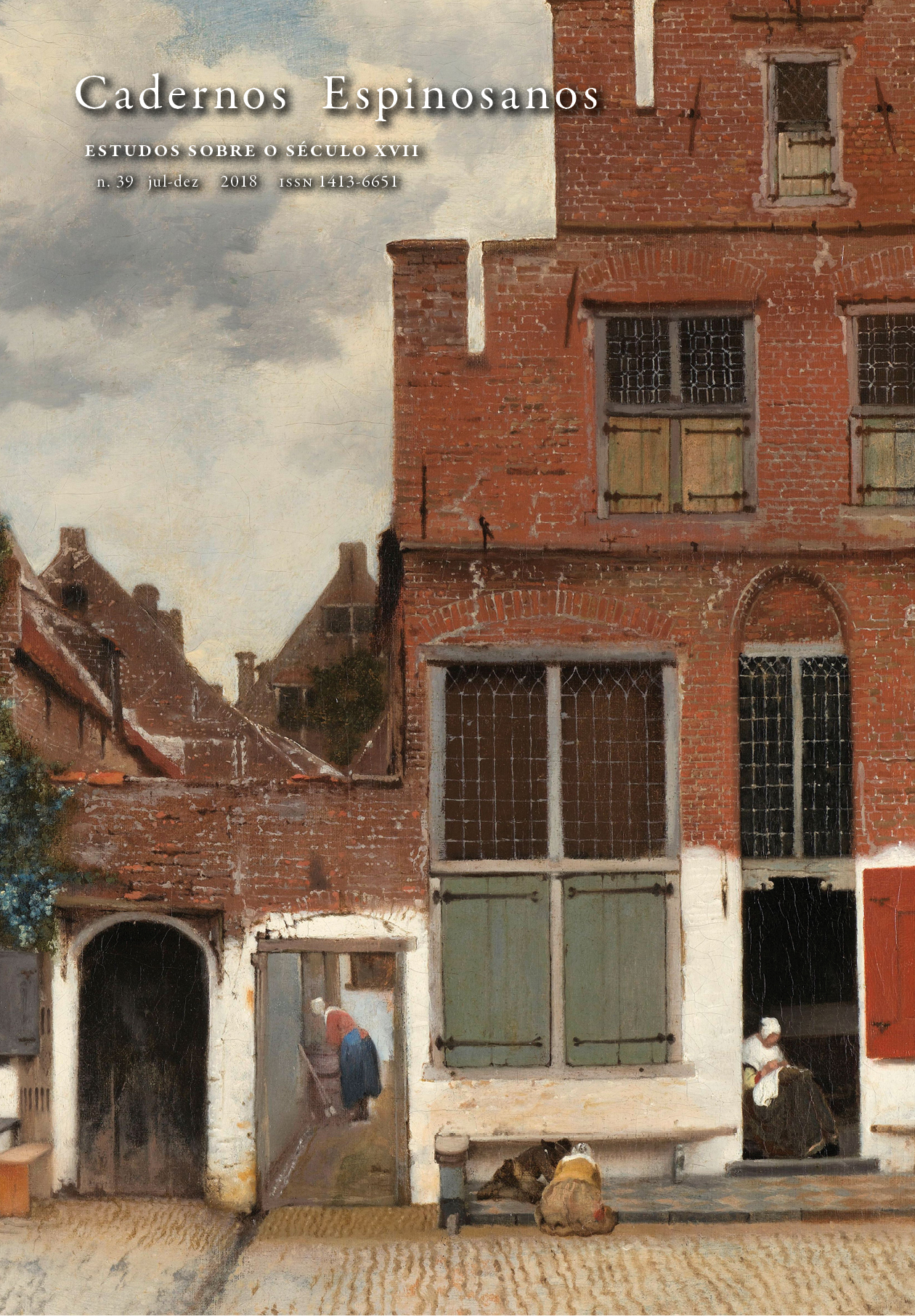FROM COMMON TO COMMUNITY: LIFE IN SOCIETY IN ETHICS IV
DOI:
https://doi.org/10.11606/issn.2447-9012.espinosa.2018.139933Keywords:
Spinoza, Common, Community, PowerAbstract
In the scholium of the proposition iv18, addressing the solu-tions against human impotence and inconstancy, Spinoza states the mutual utility between two men favoring their powers of acting as a solution to servitude. This favoring is enabled by the many things men have in com-mon between them, which make possible not only the relations that in-crease power, when men are led by reason, but also those that decrease this power, in which men are subjected to passions, being able to be contrary and harmful to each other. However, despite the ambivalence of those re-lations provided by the common, the utility of social life is still claimed as a way of mutual favoring between men when they are led by reason and by the foundation of the Civitas, which institutes a middle term between the passional and the rational dimension of menDownloads
Download data is not yet available.
Downloads
Published
2018-12-27
Issue
Section
Artigos
License
Autores que publicam nesta revista concordam com os seguintes termos:
- Autores mantém os direitos autorais e concedem à revista o direito de primeira publicação, com o trabalho simultaneamente licenciado sob a Licença Creative Commons Attribution que permite o compartilhamento do trabalho com reconhecimento da autoria e publicação inicial nesta revista.
- Autores têm autorização para assumir contratos adicionais separadamente, para distribuição não-exclusiva da versão do trabalho publicada nesta revista (ex.: publicar em repositório institucional ou como capítulo de livro), com reconhecimento de autoria e publicação inicial nesta revista.
Authors who publish in this journal agree to the following terms:
a. Authors retain copyright and grant the journal the right of first publication with the work simultaneously licensed under the Creative Commons Attribution License that allows to share the work with an acknowledgment of its authorship and initial publication in this journal.
b. Authors are authorized to take on additional contracts separately, to non-exclusive distribution of the article published in this journal (ex.: to publish in institutional repository or as part of a book), with an acknowledgment of its initial publication in this journal.
How to Cite
Mendes, R. P. (2018). FROM COMMON TO COMMUNITY: LIFE IN SOCIETY IN ETHICS IV. Cadernos Espinosanos, 39, 317-338. https://doi.org/10.11606/issn.2447-9012.espinosa.2018.139933


